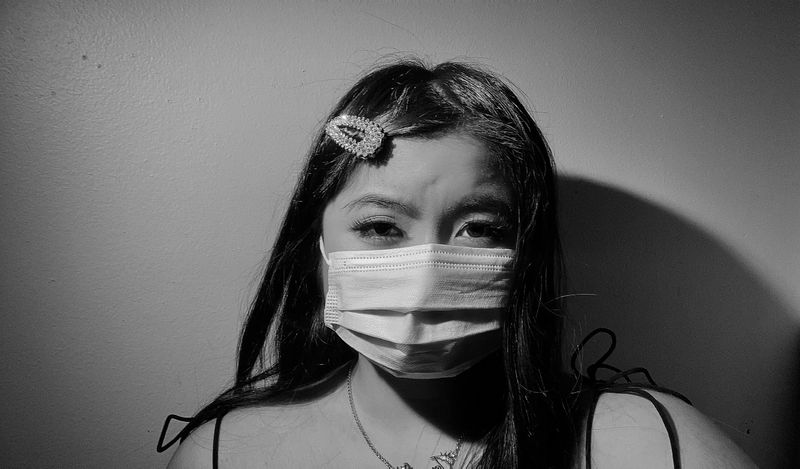We Are America
“Asian Virus”?
By Janefer

Lowell High School, Lowell, Massachusetts
I used to believe that America was a place filled with acceptance. I’m a second-generation immigrant whose parents came from Cambodia. I grew up Cambodian-American in Lowell, and had many friends who came from Kenya, Thailand, Puerto Rico, and many more areas throughout the world.
I was taught about racism in school. I was taught about slavery, segregation and Jim Crow Laws, and about modern day protests for equality. Although I learned more about the history of racism in America, I didn’t think racism would even be present in Lowell, because our city was a place where the majority were immigrants who came from many different countries. I also never witnessed any discrimination towards Asians, so I didn’t think Asian ever faced racism in America.
In 2020, midway through my sophomore year, the COVID-19 pandemic began. Suddenly I started seeing reports on Instagram of Asians, especially elderly and the kids being attacked for being Asian in the United States. I read about a father and his child who got stabbed at a Sam's Club in Texas for being Asian. Their attacker blamed them for spreading COVID-19. Luckily, both of them survived. I read about a woman in Santa Clara, California whose dog was kicked, and she was spat on, the attacker yelling at her: “Take your disease that’s ruining our country and go home.” I wondered why most of it wasn’t covered on the TV station news. I was confused why others were blaming us for the pandemic. Some called COVID-19 the “Chinese Virus” or “Kung-Flu” or even “Asian Virus.” Our own president, Donald Trump, kept using improper terms for COVID, which led to an increase of violence towards Asians. I was astonished and I was also livid. I thought he and the people who had the same mindset as him were ignorant. That spring, as COVID spread, I was really worried about other Asians in the other states in America, but also here in Massachusetts.
That spring, I was in school one day walking down the hallway to get to my next class. I was walking and listening to music, but then I heard another student shout dramatically: “Asians deserve to get beaten for Covid. They were the ones who spread it around and started it.”
It is important to keep in mind: I go to a diverse school where everyone has come from different backgrounds. Although the comment wasn’t directed towards me and I only overheard it, I was still upset. I was shocked to hear this. I was more than shocked, I was furious, and also confused. Lots of people ignored the comment. But a few stood up against her, they called the person out on her ignorance. I didn’t get to listen to what they said to her since I had to go to my next class, and I didn’t want the situation to bother me throughout the day. But I was so upset that I couldn’t even concentrate in class. I hated the blaming and generalizations. I hated the ignorance in her statement.
At that moment, I realized that racism can happen anywhere. It doesn’t matter if you’re in a diverse place. Racism and prejudice will still happen. A few weeks later in March, our school closed due to the pandemic. It was hard to adapt to the lockdown because I was missing most of my friends. As COVID cases increased, there were more hate crimes directed at Asians, and that really broke my heart. I imagined that the Asians who were attacked could’ve been my family members. Eventually, we will have to find a way to address the inequality we encounter. Our schools and our communities should address the prejudice that is taking place. When we finally come back to school, I hope we can teach about prejudice behavior in order to make the environment feel safe for everyone.
© Janefer. All rights reserved. If you are interested in quoting this story, contact the national team and we can put you in touch with the author’s teacher.